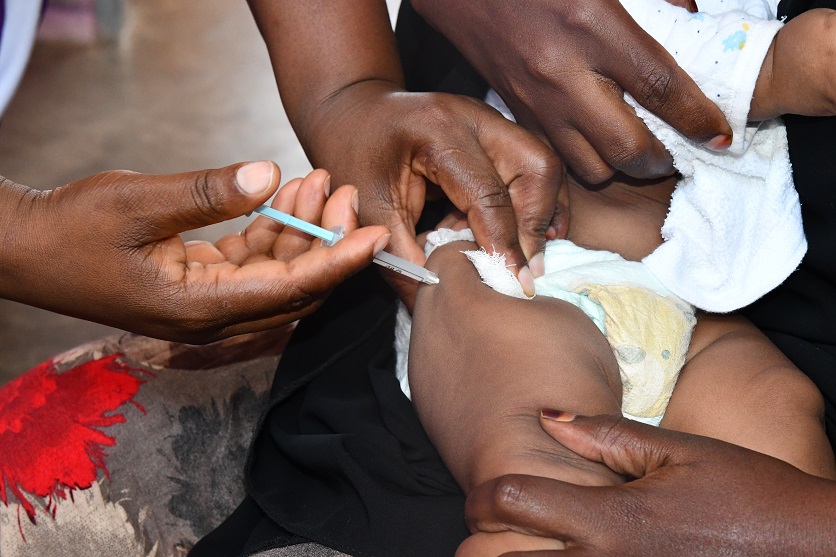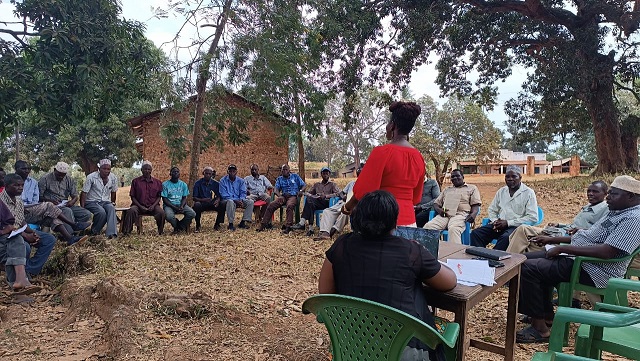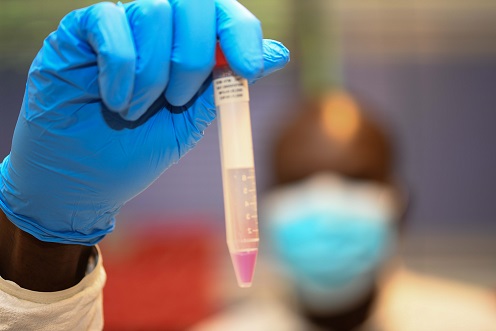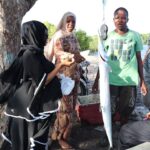
PHOTO CREDIT I KEMRI-WELLCOME
By Odhiambo David | odhisdavid59@gmail.com
A campaign which seeks to reduce malaria transmission in Kenya using an anti-parasitic drug that kills mosquitoes feeding on treated people has been launched.
The project known as The Broad One Health Endectocide-based Malaria Intervention in Africa (BOHEMIA) will administer a drug called ivermectin known to fight parasites. It is also credited to killing mosquitoes with an appetite for patients already treated for the disease.
In a press release by BOHEMIA and KEMRI-Wellcome, the project leads announced that they have initiated mass drug administration (MDA) campaign for the drug to humans and livestock which they say, tackles residual malaria transmission.
BOHEMIA is a consortium led by the Barcelona Institute for Global Health (ISGlobal) and funded by Unitaid. The BOHEMIA project is being implemented in Mozambique by the Manhiça Health Research Centre (CISM), and in Kenya by the KEMRI-Wellcome Trust research program and the Kenya Medical Research Institute (KEMRI). The consortium also includes partners: Ifakara Health Institute (IHI) in Tanzania, the University Hospital of Bern in Switzerland, the University of Oxford in the United Kingdom, and Virginia Tech in the United States.
Ivermectin targets mosquitoes that feed on treated humans regardless of the place and time of biting, as well as mosquitoes that feed partly on livestock and are not routinely exposed to insecticide within the home.
The drug, which is already in use for treating parasitic infections such as river blindness and head lice, presents a promising avenue for malaria control.
Research has indicated that when a mosquito bites a person who has been treated with ivermectin, the mosquito’s survival is significantly shortened, and it may not transmit malaria.

PHOTO CREDIT I KEMRI-WELLCOME
Dr. Marta Maia, a medical entomologist at KEMRI and one of BOHEMIA’s co-chief scientists, views this approach as a game-changer in curbing malaria transmission within mosquito population zones.
“Administering ivermectin to as many people as possible at the same time in a community might be a new way to control malaria transmission. With BOHEMIA, we are striving to generate evidence to support this strategy,” she said.
The trial in Kwale County will evaluate the safety and efficacy of ivermectin as a novel vector control strategy to reduce malaria transmission. Approximately 32,000 participants in selected areas of Msambweni and Lungalunga sub-counties will receive the drug as part of the study.
To ensure scientific integrity, the study area has been divided into clusters, with participants randomly assigned to two groups: one receiving ivermectin (the trial drug) and the other receiving albendazole, serving as the control group.
In preparation for the mass drug administration, BOHEMIA researchers have mapped households in the study area and created digital maps to facilitate cluster formation. The project also incorporates a ‘social science’ component, where researchers are residing within the communities to gain insights into people’s lifestyles and the acceptability of the ivermectin MDA.
“Unlike most clinical trials, we are approaching our trial participants to take a drug that will not immediately protect them from malaria, but would instead help break the transmission cycle, reducing malaria in the future,” noted Mary Mael, Project Manager, BOHEMIA.

PHOTO I KEMRI-WELLCOME TRUST
Community engagement activities have been carried out in collaboration with key stakeholders, including county government representatives and religious leaders, to raise awareness and understanding of the BOHEMIA project and malaria control efforts.
Dr. Joseph Mwangangi, Acting Deputy Director of KEMRI-CGMR-C, said the project’s mission is to improve malaria control tools, including exploring ivermectin – a cost-effective and readily accessible drug known for its well-established safety record – as a promising avenue.
“Our goal is to enhance the tools available for malaria control, and what better way than to explore an affordable and accessible drug like ivermectin, which has a well-established safety profile,” he said.
This initiative aims to assess the effectiveness of ivermectin as a novel and complementary strategy for reducing malaria transmission by targeting mosquito populations. The MDA in Kenya is the second trial conducted as part of the study, which receives funding from Unitaid and is led by the Barcelona Institute of Global Health (ISGlobal).
“Vector control, our most effective strategy, is now challenged by widespread insecticide resistance and mosquitoes that avoid insecticides in bed nets and sprayed indoors by biting outdoors, feeding upon animals or changing their biting times,” noted Dr Mwangangi.
Malaria incidence in Kenya exhibits regional variations, with the lake endemic zone having the highest prevalence (27%), followed by the coast endemic zone (8%), and the highland epidemic zone (3%). In contrast, semi-arid, seasonal, and low-risk areas report less than 1% prevalence, respectively.

PHOTO I KEMRI-WELLCOME TRUST
BOHEMIA’s innovative approach to malaria control holds significant potential to contribute significantly to the ongoing battle against this deadly disease, offering hope for a more effective and sustainable malaria control strategy in the future.
Mael added that until a magical silver bullet to end malaria is found, there is need to continue adding new and innovative tools and strategies to the malaria toolbox. This, she says, requires sustained funding, creativity, and passionate people who envision a world where no child dies of malaria.
The BOHEMIA project comes hot on the heels of another announcement by WHO recommending the R21/Matrix-M malaria vaccine, to be used in children to prevent malaria in endemic areas. The announcement means there are now two vaccines that can help meet the high demand from malaria-endemic regions of the world, and complement the range of existing malaria tools.
“The joint SAGE-MPAG recommendation to WHO of the R21/Matrix-M vaccine represents another major step towards our goal of creating a malaria-free life for every child,” said David Marlow, CEO, Gavi. “This vaccine, along with the existing RTS,S/AS01e vaccine, will be an effective complement to existing malaria interventions. Once it receives WHO prequalification, it will play a key role in meeting the high demand in endemic countries.”
Gavi, the Vaccine Alliance welcomes the announcement, which can help reshape the fight against malaria, a disease that, according to WHO data, killed 619,000 people globally in 2021. 96% of those deaths were in the Africa region, making malaria one of Africa’s biggest killers.
It emphasises the key role these two vaccines and other interventions will play as the malaria community aims to advance its goals over the next decade.








